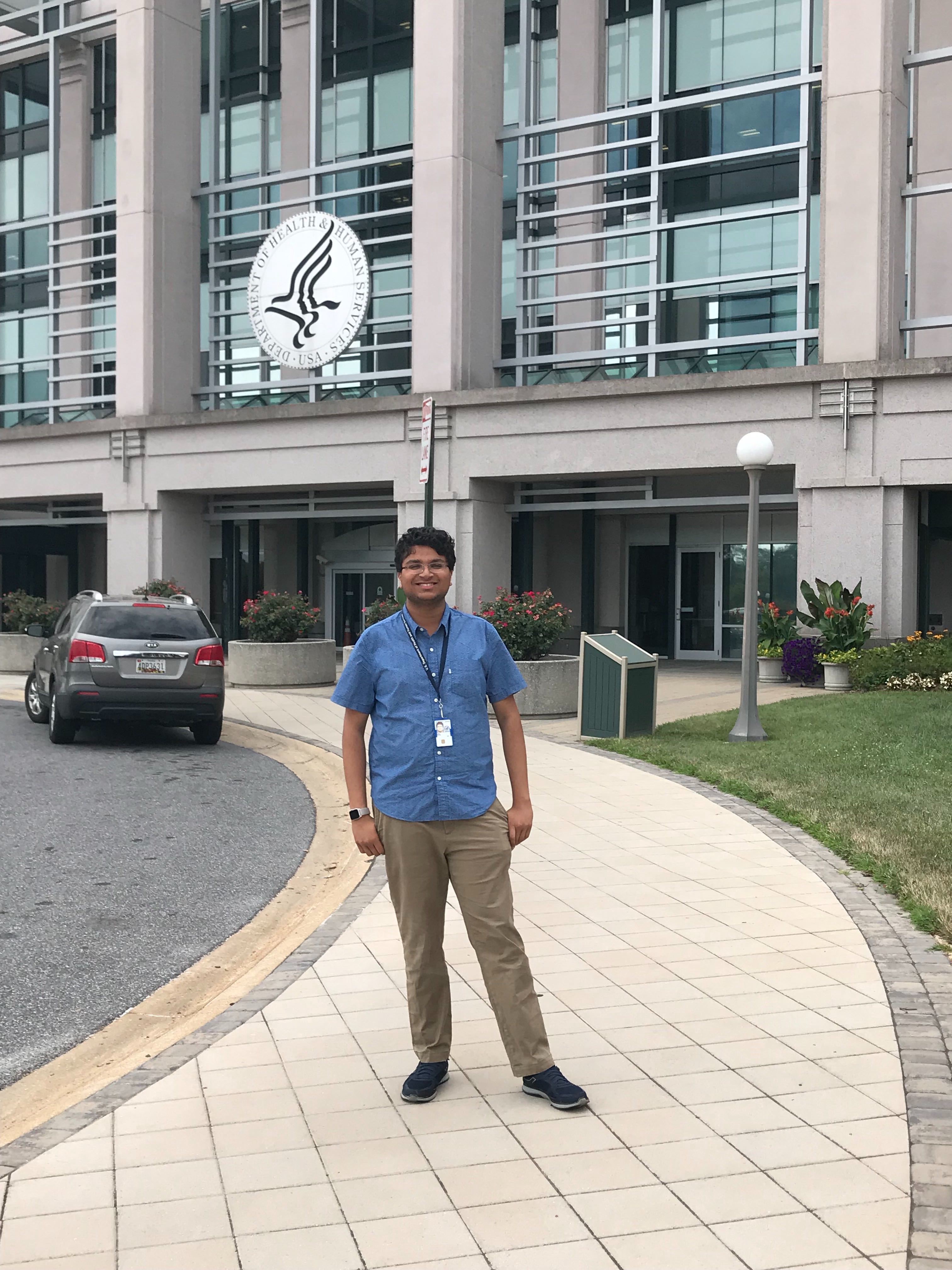Hacking the Bureaucracy in DC
Note: This was originally posted to Medium via Coding it Forward.
On June 1st, I completed my first year at UC San Diego. Two days later, I was flying to Washington, DC to work as a Software Engineering Fellow for the Department of Health and Human Services. I wasn’t sure what to expect — I’d previously worked at a startup — Zesty.io — and did research at a supercomputer — San Diego Supercomputer Center — but this was a whole other animal.
Wait — this isn’t software engineering?
During my first week of work, I quickly realized something about my workplace: there weren’t any software engineers here. Puzzled, I asked around. Working for the CIO’s Office in DC meant that there weren’t any software engineers immediately near me and that my work would focus on analyzing data and assisting with managing the existing CIO software asset process. While this work is incredibly useful — it allows the agency to optimize its resources so it can spend more money on programs such as the Ignite Accelerator — I knew that it wasn’t the only way I could contribute technically to HHS. With this in mind, I decided to see what I could do myself.
 At the HHS/CMS Office in Baltimore
At the HHS/CMS Office in Baltimore
Taking the advice of my mentors and the directors of the Fellowship, I decided to talk to everyone I could at HHS. As a Software Engineer, this wasn’t my first instinct (nor something my profession is known to be particularly fond of) but it proved to be the most useful thing I could do. By talking with different people at HHS, and following up with the people I met at the various events throughout the Fellowship, I learned about different programs within the agency and gained a better understanding of what it took to enact change.
Throughout this entire process, my fellow Fellow Aditya Krishnaswamy noticed my struggle and helpfully introduced me to Margeaux Akazawa, the Internal Innovation Programs Lead at HHS’ CTO Office. She allowed me to get an inside look at the aforementioned Ignite Accelerator — an incredible program that fosters innovation by gathering entrepreneurial-minded civil servants within HHS to enact meaningful change at the agency — and introduced me to the Ignite teams as a Software Consultant. Proving quite true to the name, she ignited a flame under me to learn more about other groups working to enact change at HHS, which ultimately lead to me discovering another group at HHS.
A lunch to remember
A few weeks went by since I started working with the Ignite Accelerator, and while I enjoyed the work, I still wanted to do more. I expressed this to Chris Kuang, one of the directors of the Civic Digital Fellowship, who worked to set up a lunch with us and The U.S. Digital Service team at HHS, to introduce us to them and learn more about what they did. We had the amazing opportunity to have lunch with Amy Gleason, a Digital Service Expert at the US Digital Service. She gave us an overview of the kind of work USDS was doing at HHS, told us about a GitHub where some of their work was and answered our crazy questions about what it was like to work for USDS. After she left, I immediately searched for the USDS GitHub for their HHS work and tried to get a project called “dpc-app” working on my computer. Running into some problems, I decided to consult the creators and tracked down their office where I met the full USDS team at HHS.
 Spoiler alert: I was the intern in the hallway.
Spoiler alert: I was the intern in the hallway.
And the rest, as they say, is history. I spent the last part of my Fellowship working closely with the USDS team, working on the Data at the Point of Care API. I worked to add tests, analytics, fix bugs, help out on documentation, and add some minor features. There’s honestly nothing quite like working on software, only to go to the White House and see it launched to the American People. The entire experience, from USDS Staff Meetings to chatting with USDSers in Jackson Place, and to engineering alongside brilliant engineers, opened to me a whole world of innovation that I hadn’t known to exist just 10 weeks prior.
Acknowledgments
I’m so incredibly grateful for all the support I got during these 10 weeks — I would not have had as much fun here had I not had the support of all the incredible people. Shoutouts to Kristen Honey, Amy Gleason, Margeaux Akazawa, Nick Robison, Shannon Sartin, Steve Ressler, and Zachary Goldfein.